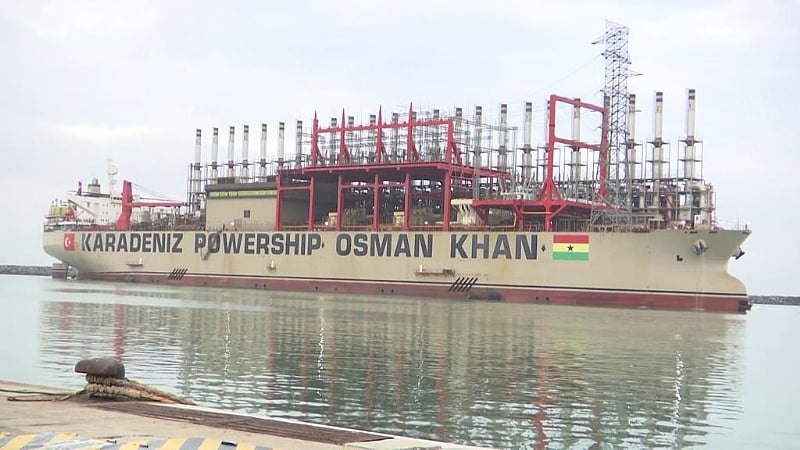Karpowership Ghana, a major independent power producer in the country, has officially initiated negotiations with the Ghanaian government to address a substantial outstanding debt of $379 million. This significant financial obligation stems from unpaid invoices for power supplied to the national grid, and Karpowership’s management has expressed growing concern over the impact of these arrears on its operational capacity and financial stability. The company has warned that failure to resolve this issue promptly could necessitate the suspension of its electricity supply, a move that would have serious repercussions for Ghana’s energy security. However, the Ministry of Energy and Green Transition has moved to reassure the public, stating that contingency plans are in place and that power supply will not be disrupted.
Karpowership Ghana’s Communication Manager, Sandra Amarquaye, confirmed the ongoing discussions with the Ministry of Energy, emphasizing the company’s commitment to its long-standing partnership with Ghana. While acknowledging the seriousness of the situation, she expressed optimism that a mutually beneficial resolution could be reached, thereby preserving the stability of the power supply agreement. The current negotiations underscore the growing financial challenges facing Ghana’s energy sector, characterized by accumulating debts and the potential disruption of critical power generation arrangements. The resolution of this particular debt is viewed as crucial for maintaining investor confidence and ensuring the continued reliability of electricity supply.
The timing of these negotiations coincides with rising concerns regarding the financial sustainability of Ghana’s energy sector as a whole. Mounting debts across the sector are posing a significant threat to the stability of various power purchase agreements and raising questions about the government’s ability to meet its financial obligations. Experts within the energy industry caution that prolonged delays in settling these debts could have severe consequences, potentially hindering power generation capacity and ultimately leading to disruptions in the electricity supply. Such disruptions could have far-reaching impacts on businesses, industries, and essential services across the country.
The gravity of the situation is further underscored by Karpowership’s explicit warning regarding the potential suspension of its electricity supply. While the company has expressed its commitment to finding a sustainable solution, the threat of service interruption highlights the urgency of the situation and the need for a swift resolution. The potential implications of a power outage, particularly given Karpowership’s significant contribution to Ghana’s electricity grid, are substantial and could disrupt economic activity and essential services. The government’s commitment to resolving the situation is therefore paramount.
The Ministry of Energy and Green Transition, however, has sought to allay public anxieties, assuring citizens that the current situation will not lead to power disruptions. Isaac Agyei Kwakye, the Ministry’s Public Relations Officer, reiterated the government’s commitment to resolving the issue, highlighting ongoing efforts to develop a sustainable solution to address the accumulated debt. He acknowledged the financial burden represented by the outstanding invoices but underscored the government’s determination to find a way forward. The Minister of Energy, John Jinapor, has reportedly outlined plans to clear the debt, signaling the government’s recognition of the importance of resolving this financial impasse.
The ongoing negotiations between Karpowership Ghana and the Ministry of Energy represent a critical juncture for Ghana’s energy sector. The outcome of these discussions will not only determine the immediate fate of electricity supply but also have broader implications for the financial stability and long-term sustainability of the country’s energy landscape. A successful resolution will require both parties to demonstrate flexibility and commitment to finding a mutually agreeable solution that addresses Karpowership’s legitimate financial concerns while ensuring the continued reliability of power supply for the benefit of the Ghanaian people. The situation underscores the need for robust financial planning within the energy sector and the importance of honoring contractual obligations to maintain investor confidence and ensure the long-term viability of power generation projects.


